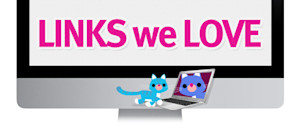What every job applicant wants to hear:
“You, my friend, are a mutant — and I have a need of mutants — desperate need!”
– Dr. Xavier
Our feature article last week explored the benefits and pitfalls of social media when it comes to inclusivity and diversity in the workplace.
So, now you know that using social media for recruiting, especially when you are targeting specific demographics, is a game of balance. While social media, and most notably Facebook Ads, offer a way to direct job postings at very specific groups of people, inclusivity requires that, during the hiring process, no one is discriminated against based on gender, race, religion, or superpower preference.
You may be targeting the 22 year-old tech-savvy millennial with your job post, but if you get an application from a 42 year-old ex-librarian who is perfect for the job, hire her. (They’re probably both wearing the same glasses anyway!)
Diversity isn’t just about gender, race, and religion. If you have a racially diverse team, but everyone on that team has the same life experience, values, interests, and opinions, then your team is not diverse. Varying outlooks, life experiences, and learning styles are equally important, and make a company flexible and strong.
That being said, let’s move on to some practical tips for using social media to banish exclusivity, embrace diversity, and create a winning team.
Make Your Content Reflect Diversity
This one’s a pretty obvious one. It’s also pretty easy to accomplish, since most stock photographers are now hyper-aware of their potential clients diversity requirements. Thus all of the racially-diverse images of happy men and women in business suits floating around the internet.
I do have a little tip for any of you looking to appeal to millennials but want to stay inclusive; old-timey images! Millennial hipsters are really into black and white photos of dudes in dapper suits, with old-fashioned hairstyles and mustaches.
Enlist Your Team
Hopefully your team of employees is pretty diverse already. If so, you have a great resource in them. Get your team on-board with your social recruiting; have them share posts, comment, and give input on the content of your Facebook Ads, Tweets, and job posts. If your content comes from diversity, then, chances are, it too will be diverse!
I’ll use an example from our own team, which is pretty darn diverse itself. Our blog is one of the main vehicles for us to share content with our clients, peers, and even candidates. Therefore, coming up with ideas for blog posts that reflect the message Jobcast wants to put out is no easy task.
Luckily, we have a team of employees who all have pretty great ideas for topics. Johnny is full of amazing suggestions about technical tasks that need covering, Ryan is always in the know about what our clients want to read, and I bring the girl power (ladies of HR unite!) as well as the ability to distill technical jargon down to regular words.
Target Diversity
This is probably the best way social media can help you bring diversity into the workplace, but it is also the most difficult to navigate.
Legality Alert! You must understand how your province, state, country, or home planet regulates recruiting practices. It’s going to vary from place to place, so I can’t really help you with this one. Sorry.
Social media, especially Facebook, allows you to target candidates really really specifically. If you need to meet diversity requirements, you can use Facebook Ads to target the demographic of candidates you need to attract.
It’s pretty straight-forward — here’s a tutorial on targeting candidates with Facebook Ads. There is some murkiness surrounding the legality and ethics of targeting candidates based on something like age or gender.
We’ve already given a legality disclaimer, so how do you avoid ethical problems with targeted recruiting campaigns? Easy. Understand that targeting diversity is different than being exclusionary.
Yes, you are primarily attempting to reach a specific demographic with your job posts, but if those posts are seen by a candidate who falls outside of that demographic, they can still apply for the position, and you, being the very ethical employer that you are, would not exclude them based on their age, gender, race, or the skinniness of their jeans.
Look for diversity, but value a culture of inclusion over all.
“You’ve proven you can think and act for yourselves!! Your training period is over!! Congratulations, my -X-Men- employers/recruiters!!”
– Samara Parker in the voice of Doctor Xavier
Read More







